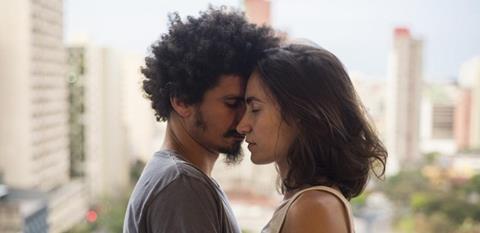Debut from Brazilian director explores two women who go in search of a better life.

Brazilian filmmaker Marilia Rocha feature debut Where I Grow Old revolves two Portuguese women who have moved to Brazil in search of a better life, like tens of thousands of their compatriots in recent years in a bid to escape the economic downturn back home.
Where did you get the idea for the film?
The film was born a few years ago, when I met Francisca, a young Portuguese women who was striving for a new life in Belo Horizonte, where I’m based. Early on I felt attracted by the conflicting forces that clashed in her Portuguese heart. The desire to leave, combined with a hopeless longing for home. I realized that those who experience this dilemma will never be comfortable either in their homeland or elsewhere.
During the film’s research, I met dozens of young Portuguese girls who were experiencing their homeland’s financial crisis and yearning for a chance to leave. They had no outlook for the future in their homeland and they were craving for a new life in my country. That was the spark of the film.
Can you explain why you decided to shoot in this city? What’s so special about it? And how did you incorporate it into the film?
In my previous films I had always shot faraway places. Maybe that’s why I felt attracted by creating a portrait of the city where I live this time. It’s appealing to shoot a place that has no distinguishing interest in the sense that it is not a renowned touristic town, has no peculiar beauty and where we find more emigrants than immigrants. However, it is also a place where nearly 3 million people choose to live. Its streets, its chaotic architecture, its lively backyards and its different sounds are very present in the film.
How did you cast the two women in the film?
I met Francisca Manuel in Belo Horizonte, where she lived for sometime as her character does in the film. I then cast Elizabete Francisca in Portugal after an exhausting process, filming dozens of professional and non-professional actress. Preparation was a process of making them confident with each other, with myself and with the film crew. We worked hard to get set for combining preparation and improvisation.
Most your work until now has been in the documentary genre how did this influence your fiction film-making?
My intention was to create a story, while still maintaining a considerable margin of “non-control” and of reality during the process. It was certainly different from my previous experiences, but it was highly influenced by those experiences too. The proportion of fiction or non-fiction wasn’t something that I really worried about during the process. The most important question was: How can I bring myself closer to the people I want to film? How can we create this film together?
Do you have any other projects in the pipeline?
I’m working on a screenplay for a documentary series about the work of Brazilian writers and influenced by the surroundings where they lived in Rio de Janeiro. It’s a project that integrates a creative pole of 6 other features and TV series projects and will be produced by Anavilhana, which also produced Where I Grow Old.






![The Brightest SunScreen[Courtesy HKIFF]](https://d1nslcd7m2225b.cloudfront.net/Pictures/274x183/3/5/0/1448350_thebrightestsunscreencourtesyhkiff_312678.jpg)


















No comments yet